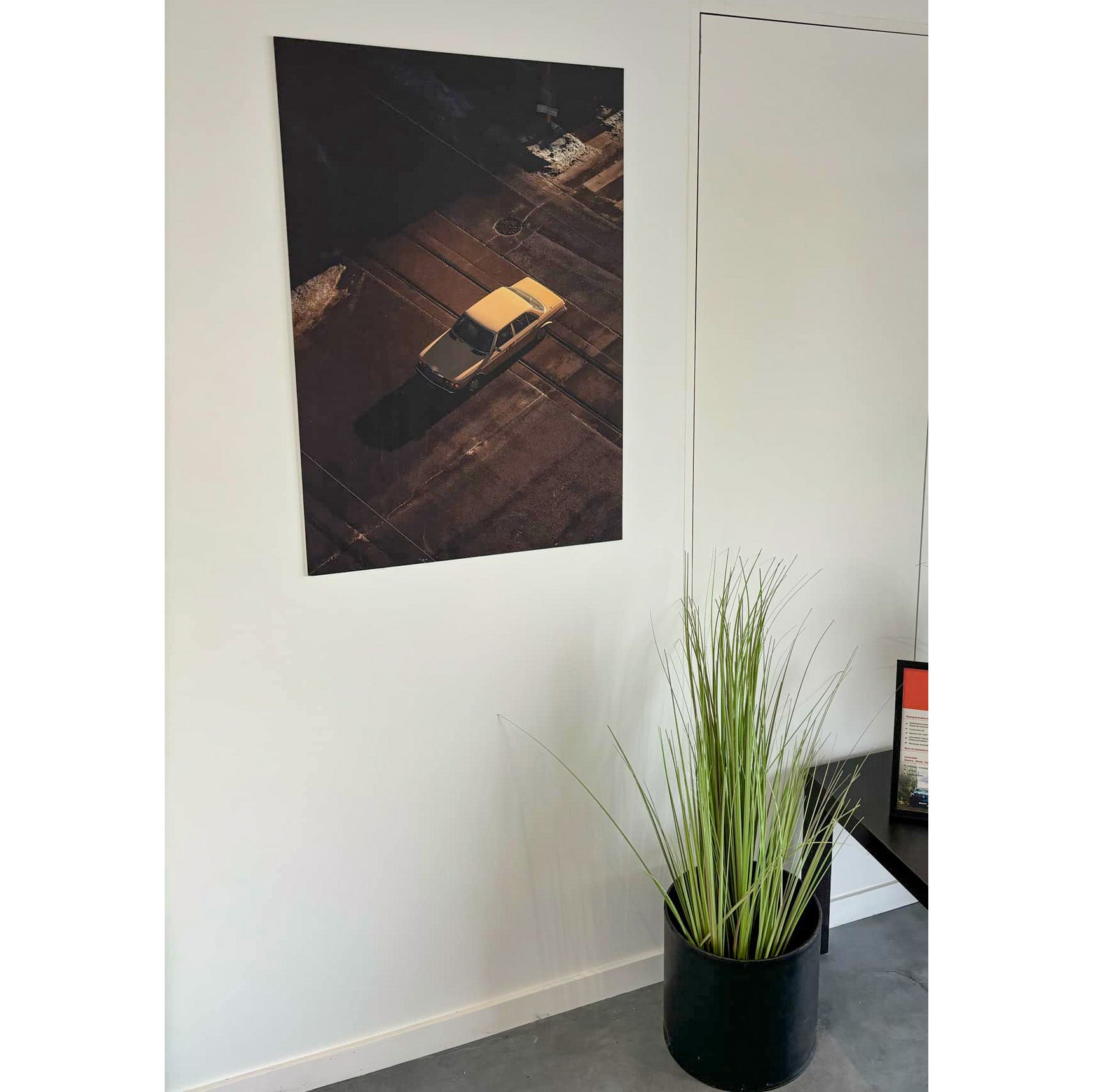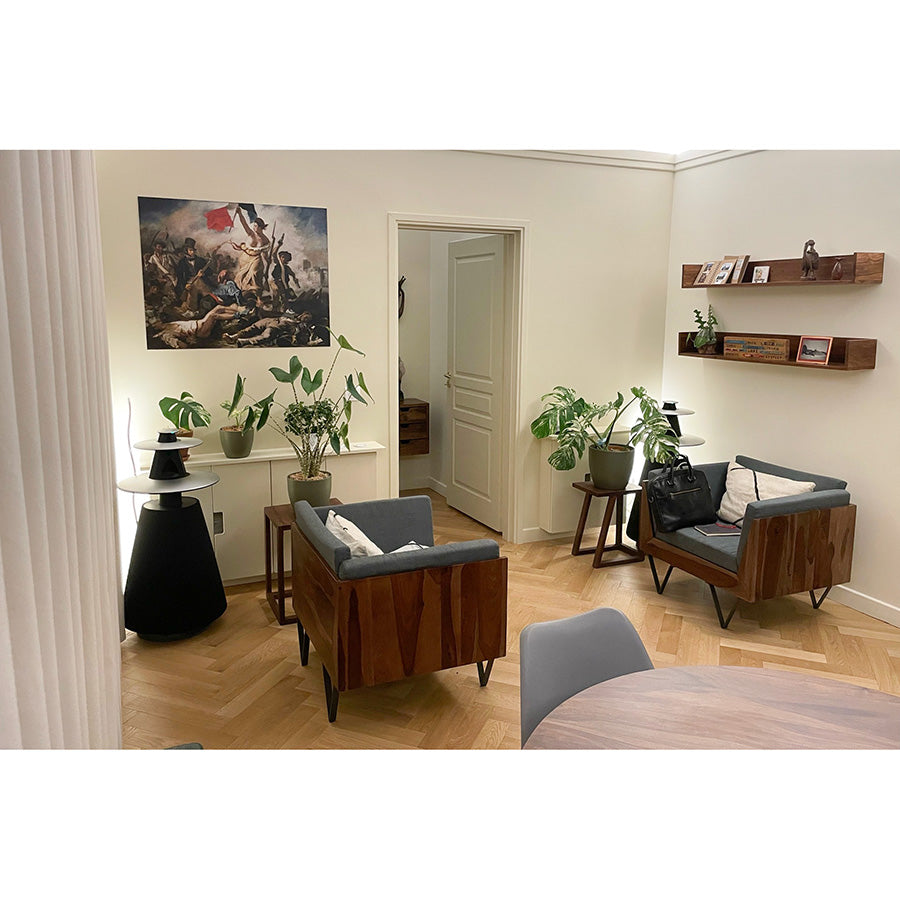Art print | Bernhard von Tschoffen passed away in 1802 - Heinrich Friedrich Füger


View from behind

Frame (optional)
Bernhard von Tschoffen art print, who passed away in 1802 - Heinrich Friedrich Füger – Engaging introduction
In the fascinating universe of art, certain works transcend time and space, offering a poignant glimpse into the history and culture of an era. The Bernhard von Tschoffen art print, who passed away in 1802 - Heinrich Friedrich Füger embodies this essence, inviting the viewer to delve into a moment of reflection on mortality and memory. This painting, which pays tribute to the life of an eminent man, is much more than a simple representation; it is a testament to the artistic sensitivity of its creator and the period in which it was conceived. Through this work, Füger manages to capture human emotion while celebrating the ephemeral beauty of existence.
Style and uniqueness of the work
Füger's work is distinguished by its neoclassical style, characterized by a pursuit of ideal beauty and a careful depiction of human figures. In "Bernhard von Tschoffen, who passed away in 1802," the artist uses a palette of delicate colors, blending warm and cool tones to create an atmosphere that is both melancholic and serene. The meticulous details of the clothing, the reflective posture of the central figure, and the carefully crafted background demonstrate impressive technical mastery. The composition is balanced, with each element carefully arranged to guide the viewer's gaze toward Tschoffen's expressive face. This attention to detail, combined with palpable emotional depth, gives the work a uniqueness that continues to captivate art enthusiasts.
The artist and his influence
Heinrich Friedrich Füger, born in 1751, is an emblematic figure of German neoclassicism. Trained at the Vienna Academy of Fine Arts, he established himself as a renowned artist through his portraits and historical compositions. Füger was influenced by Renaissance masters, as well as by the ideals of Antiquity, which is reflected in the rigor of his lines and the majesty of his subjects. His ability to combine impeccable technique with a deep understanding of human psychology made him a pioneer in the field of portraiture. Through

Matte finish

View from behind

Frame (optional)
Bernhard von Tschoffen art print, who passed away in 1802 - Heinrich Friedrich Füger – Engaging introduction
In the fascinating universe of art, certain works transcend time and space, offering a poignant glimpse into the history and culture of an era. The Bernhard von Tschoffen art print, who passed away in 1802 - Heinrich Friedrich Füger embodies this essence, inviting the viewer to delve into a moment of reflection on mortality and memory. This painting, which pays tribute to the life of an eminent man, is much more than a simple representation; it is a testament to the artistic sensitivity of its creator and the period in which it was conceived. Through this work, Füger manages to capture human emotion while celebrating the ephemeral beauty of existence.
Style and uniqueness of the work
Füger's work is distinguished by its neoclassical style, characterized by a pursuit of ideal beauty and a careful depiction of human figures. In "Bernhard von Tschoffen, who passed away in 1802," the artist uses a palette of delicate colors, blending warm and cool tones to create an atmosphere that is both melancholic and serene. The meticulous details of the clothing, the reflective posture of the central figure, and the carefully crafted background demonstrate impressive technical mastery. The composition is balanced, with each element carefully arranged to guide the viewer's gaze toward Tschoffen's expressive face. This attention to detail, combined with palpable emotional depth, gives the work a uniqueness that continues to captivate art enthusiasts.
The artist and his influence
Heinrich Friedrich Füger, born in 1751, is an emblematic figure of German neoclassicism. Trained at the Vienna Academy of Fine Arts, he established himself as a renowned artist through his portraits and historical compositions. Füger was influenced by Renaissance masters, as well as by the ideals of Antiquity, which is reflected in the rigor of his lines and the majesty of his subjects. His ability to combine impeccable technique with a deep understanding of human psychology made him a pioneer in the field of portraiture. Through









